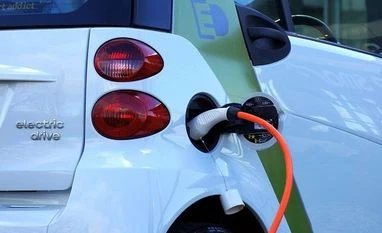India has to push the pedal harder if it wants to be a significant player in the Asian electric vehicle (EV) and supply chain sweepstakes.
According to research from S&P Global Ratings, the EV penetration rate (EV sales as a percentage of total light vehicle sales, including passenger vehicles and light commercial vehicles) in India in calendar year 2022 was only 1.1 per cent, as compared to the Asian average of 17.3 per cent.
The countries covered in the region include China, Japan, South Korea, India, Indonesia, Malaysia, the Philippines, Singapore, Thailand, Vietnam, the greater China region, and Pakistan.
While China is at the top, with an EV penetration of 27.1 per cent, South Korea has already hit 10.3 per cent after a slow start. The average range of EV penetration in countries like Indonesia, Vietnam, Malaysia, the Philippines and Thailand ranges from 0. 1 per cent to 2.5 per cent. S&P says that among these, Thailand has the fastest rate of electrification.
The EV penetration in Japan is at 2.2 per cent, but that is because unlike India, the Japanese government has decided to support different kinds of clean technology such as hybrids, plug-in hybrids and fuel cell vehicles, apart from vehicles powered with lithium ion batteries. So pure EV penetration is muted. Also, globally, EV penetration has been found to be at 13.3 per cent.
The Indian government has projected that EV penetration should hit 30 per cent by 2030. But currently, 90 per cent of EVs in the country are two and three- wheelers. Even if they are added (with the exception of e-rickshaws, which do not use lithium ion batteries) the penetration would be around 4.5 per cent.
Asian countries dominate the supply chain, with as much as 98 per cent of the battery cell supply coming from the region. According to S&P projection, it will continue to control 90 per cent of this market even in 2025. But India is still far behind others in the region in battery cell production.
More From This Section
The big players in the battery cell market include the Chinese CATL and the South Korean giant, LG EnSol, which, together, control nearly half the global supply. The other player in this space is Japan’s Panasonic which supplies to Tesla.
Though India still imports its entire requirement of cells, the production-linked incentive (PLI ) scheme could change the game. Under the scheme, 50 gigawatts of battery capacity with advanced chemistry cells is set to be built within the next two years.
When it comes to crucial raw materials like lithium, which is key to making batteries, India has some good news to report. The 5.9 million tonnes of lithium recently discovered in the Union territories of Jammu and Kashmir will be auctioned soon. Lithium has also been found in Rajasthan.
Indonesia, the largest producer of nickel in the world, is emerging as a key player in battery grade nickel (a key raw material for battery making) in Asia. As much as $30 billion dollars is being invested in the country on the mining and refining of nickel.
As for the traditional internal combustion engine (ICE) car companies in Asia that have moved into the EV space, the Tatas are in the seventh spot, with around 6 per cent of their total sales (ICE and electric) coming from EVs. The company has announced that by 2026 EVs will account for as much as 20 per cent of their total sales.
That is much better than Japanese car makers like Nissan, Honda and Toyota, whose EV penetration rates were only 1-3 per cent in 2022. However, in South Korea Hyundai and its group company Kia have an EV penetration of 10 per cent, while Chinese automakers Zhejiang Geely, Geely Auto and Dongfeng have an EV penetration of 14 per cent to over 26 per cent.
)